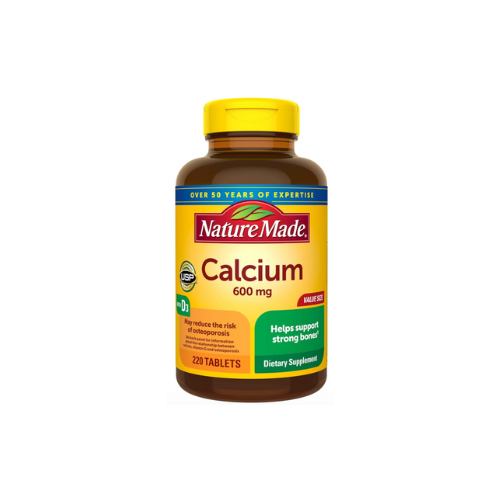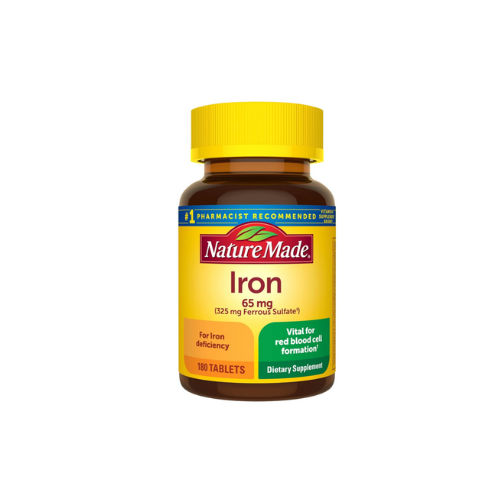Can I Eat Ice Cream on Carnivore Diet
Understanding Dietary Limits
The carnivore diet, which emphasizes the consumption of animal products to the exclusion of plant-based foods, prompts an interesting inquiry concerning the place of desserts such as ice cream. Traditional ice cream, loaded with sugars and often flavors from non-animal sources, doesn't fit within the strict confines of a carnivore dietary pattern. However, the ingenuity of those following this diet has given rise to alternative recipes that cater to the dietary restrictions while allowing for the enjoyment of a creamy treat.
These alternatives for ice cream on the carnivore diet rely on specific animal-based ingredients. High-fat dairy products, like heavy cream and butter, are staple components, and raw egg yolks serve to enrich the mixture, adding to its nutritional value and creamy texture. Instead of traditional sweeteners, which are off-limits, these recipes may incorporate natural sweeteners for flavor enhancement, though some purists might choose to forgo sweeteners altogether.
Navigating a diet with such limited ingredients encourages creativity. The adaptation of ice cream into the carnivore diet showcases this, ensuring that even those embracing an all-meat lifestyle can indulge in a version of this popular frozen dessert. The key is in selecting appropriate ingredients and employing methods that are in harmony with the diet’s principles, leading to a satisfying end-product that can be enjoyed by those following a carnivore diet.
Understanding the Carnivore Diet
The carnivore diet centers on consuming exclusively animal products and is known for its high-fat, low-carb approach, aiming to offer health benefits through a nutrient-dense diet.
Core Principles of the Carnivore Diet
The main goal of the carnivore diet is to simplify eating by focusing on meat as the primary source of nutrition, which can translate into a ketogenic (keto) metabolic state. It emphasizes the consumption of high-fat, nutrient-dense foods while minimizing carbohydrate intake. Proponents suggest this diet can lead to various health improvements ranging from weight loss to better digestive health.
Foods to Eat on the Carnivore Diet
Animal products form the foundation of the carnivore diet. The following is a list of foods typically encouraged:
Meats: Beef, chicken, pork, lamb, and organ meats
Seafood: Fish, shellfish
Dairy: High-fat dairy like butter and certain cheeses
Eggs: Whole eggs
These foods are chosen for their macronutrient profile, being high in protein and fats while nearly devoid of carbohydrates.
Foods to Avoid on the Carnivore Diet
The diet strictly excludes any plant-based foods. Foods to avoid include:
Fruits and Vegetables: All types
Grains: Wheat, rice, oats, and other cereals
Fiber: Any supplemental fiber
Sugar and Sweeteners: All forms, including natural sweeteners
Dairy: Milk, ice creams, especially those containing sugar or sweeteners
Flavorings: Such as vanilla, if derived from plant sources
The exclusion of these food groups is based on the belief that animal products provide all the necessary nutrients without the need for fiber or plant-derived substances.
Can You Eat Ice Cream on the Carnivore Diet?
Traditional ice cream poses a challenge for those adhering to a carnivore diet, but there are carnivore-friendly alternatives that align with the diet's restrictions.
Challenges with Traditional Ice Cream
Traditional ice cream is generally not compatible with the carnivore diet, primarily due to its high sugar content and the presence of other additives. Sugar, a key ingredient in most frozen desserts, can cause inflammation and is avoided on a strict carnivore diet. Regular ice cream also often contains non-carnivore-friendly items like flavorings and stabilizers that contribute to its texture and longevity but do not align with the meat-only approach.
Exploring Carnivore-Friendly Alternatives
Those on a carnivore diet can explore several carnivore ice cream recipes that use ingredients like raw heavy cream, egg whites, and natural sweeteners. These recipes focus on maintaining a creamy texture while excluding conventional sugars and additives. Sugar-free, carnivore-friendly alternatives may derive their subtle sweetness from ingredients like vanilla extract or honey in moderation. Some recipes suggest using A2 heavy cream due to its potential to be less inflammatory for those sensitive to A1 casein. These alternatives allow individuals on the carnivore diet to enjoy dessert without deviating from their dietary guidelines.
Crafting Carnivore Diet-Friendly Ice Cream
Creating ice cream suitable for the carnivore diet involves selecting specific animal-based ingredients and preparation techniques. This section outlines the essentials for making a nourishing frozen treat that aligns with the principles of a carnivore dietary pattern.
Key Ingredients for Carnivore Ice Cream
The foundation of carnivore ice cream relies on full-fat dairy such as heavy cream and raw heavy cream to provide a rich, creamy texture. Incorporating egg yolks adds thickness and nutrients. For flavor, vanilla extract or a vanilla bean can be used. It's important to source high-quality ingredients to minimize potential digestive issues and maximize the nutritional value.
Heavy Cream: The higher the fat, the creamier the ice cream.
Egg Yolks: Contribute to the custard base, a necessity for texture.
Vanilla: Pure vanilla extract or a scraped vanilla bean for flavoring.
Salt: A pinch to enhance the overall taste.
Homemade Ice Cream Making Techniques
For those owning an ice cream maker, the process involves blending the ingredients and following the device's instructions. Alternatively, a no-churn vanilla ice cream technique involves freezing the mixture and stirring it every couple of hours. Using a blender can aid in creating a smooth consistency before freezing.
Ice Cream Maker: Blend ingredients, then churn according to the manufacturer’s instructions.
No-Churn: Freeze and manually stir the mixture periodically to achieve a creamy texture.
Blender: Blend all ingredients thoroughly to ensure a uniform mixture before freezing.
Skip the lines and order your ice cream maker online for a stress-free shopping experience!
Sweetener Alternatives and Their Impact
While traditional ice cream recipes include sugar, those on a carnivore diet may opt for sweeteners like allulose, erythritol, xylitol, or stevia, which can provide sweetness without disrupting ketosis. However, some purists may choose to forego sweeteners entirely, as even natural options like honey could affect mental clarity and the anti-inflammatory benefits.
Allulose and Erythritol: May give a similar sweetness with fewer calories and lower glycemic impact.
Xylitol and Stevia: Alternatives that do not raise blood sugar but require cautious dosing due to their higher sweetness intensity.
No Sweetener: Optimizes the potential for maintaining ketosis and mental clarity.
Potential Benefits of Carnivore Ice Cream
Beyond the pleasure of enjoying a frozen dessert, carnivore ice cream, when made with nutritiously dense ingredients, could contribute to an individual's overall nutrition. The high-fat content from raw milk ice cream and A2 heavy cream may have positive effects on heart health and possess immunizing effects due to the anti-inflammatory properties inherent in certain full-fat dairy products.
Nutrition: High in fats and proteins, offering substantial nutritional value.
Health Benefits: May support heart health and immune system due to high-fat dairy's beneficial properties.
Health Considerations and Nutritional Impact
Incorporating ice cream into a carnivore diet requires a nuanced understanding of nutrition and the potential health implications. Below are considerations for those on a carnivore diet thinking about adding ice cream to their meal plan.
Balancing Carnivore Diet Goals and Dessert Consumption
The primary focus of a carnivore diet is to consume animal products exclusively. When considering ice cream, one may encounter recipes that align with these dietary restrictions, using ingredients like heavy cream and butter. Moderation is key, as excessive consumption could introduce sugars and additives that diverge from typical carnivore diet goals.
Potential Risks and Side Effects
Adding ice cream to a carnivore diet can present risks such as:
Sugar Spikes: Traditional ice cream is high in sugar, which can cause blood sugar levels to fluctuate.
Digestive Issues: For some, ingredients in ice cream may lead to digestive discomfort or exacerbate allergies and autoimmune responses.
Inflammation: Additives often found in ice cream have the potential to trigger inflammatory responses in certain individuals.
Nutrients and Vitamins in Dairy Products
Despite the potential risks, dairy products used in ice cream can also offer specific nutrients and vitamins:
Calcium
Benefit: Essential for bone health
Found in: Milk, Cheese
Vitamin A
Benefit: Supports immune function and vision
Found in: Butter, Cream
Vitamins B
Benefit: Aid in energy production in the body
Found in: Milk, Cheese
Iron
Benefit: Crucial for oxygen transport in the blood
Found in: Certain Cheeses
Zinc
Benefit: Important for immune function
Found in: Milk, Cheese
CLA (Conjugated Linoleic Acid)
Benefit: Associated with fat loss
Found in: Grass-fed dairy products
A2 Dairy
Benefit: Contains A2 beta-casein, potentially easier on digestion
Found in: Specific cow breeds' milk
Beta-casomorphin-7
Benefit: A peptide with potential impact on digestion
Found in: A2 Milk
It is critical to ensure these nutrients come from high-quality sources and to watch for additives that could undermine the health benefits of a carnivore diet.
I always prefer buying calcium, vitamin A, vitamin B, iron, and zinc online because of the added convenience!
Adapting Ice Cream to Your Carnivore Diet Needs
For individuals adhering to a carnivore diet, traditional ice cream can be incompatible due to its high sugar content and often processed ingredients. However, with careful selection of ingredients and substitutes, one can enjoy ice cream that aligns with carnivore diet principles.
Recipe Variations for Different Dietary Restrictions
Various recipe modifications allow those on a carnivore diet to enjoy ice cream while respecting their dietary restrictions. Using natural sweeteners like stevia can replace traditional sugar, keeping the recipe low-carb. High-fat dairy products such as raw heavy cream provide a rich base, while ingredients like frozen berries add natural flavor without artificial additives. For a salted variety, a touch of sea salt can enhance the taste subtly.
Egg-based recipes are another adaptation, as they are inherently carnivore-friendly. Incorporating beaten egg whites into the mixture before freezing can introduce a light, airy texture. One must be mindful of the potential risks associated with consuming raw eggs and use pasteurized eggs if safety is a concern.
Here's a brief look at recipe ingredient combinations one may consider:
High-fat dairy base: Combine raw heavy cream, a natural sweetener of choice, and sea salt.
Berry flavor addition: Add frozen berries for a hint of sweetness and flavor.
Egg inclusion: Use egg yolks for creaminess or whipped egg whites for a lighter texture.
Non-Dairy Alternatives for Ice Cream Base
For those who avoid dairy, non-dairy alternatives to a traditional ice cream base on a carnivore diet are available. Products like coconut cream offer a creamy texture similar to that of dairy and can be a suitable substitute. Another option is avocado, which brings a rich, smooth consistency and healthy fats to the dessert. While not traditional, incorporating bone broth can deliver a savory twist on the classic treat; though this may be an acquired taste.
Non-dairy milk varieties such as almond milk or cashew milk are typically not recommended for strict carnivore dieters due to their plant origins. Instead, one can focus on animal-based ingredients that align more closely with carnivore diet principles.
By understanding and utilizing the suggested ingredients and variations, making carnivore-compatible ice cream is certainly feasible. Whether one opts for a high-fat dairy base or a non-dairy alternative, there are creative ways to adhere to this dietary lifestyle while still enjoying a frozen treat.
Carnivore Diet and Weight Management
The Carnivore Diet focuses on high-fat, low-carb foods to induce ketosis—a metabolic state conducive to weight loss. Managing cravings, particularly for sweets like ice cream, requires strategic choices to maintain this metabolic state without sacrificing heart health or mental clarity.
Understanding the Role of Ketosis in the Carnivore Diet
The Carnivore Diet propels individuals into ketosis, a metabolic state where the body burns fat for fuel instead of carbohydrates, potentially leading to weight loss. This is due to the diet's emphasis on high-fat, protein-rich foods while eliminating carbohydrates. As the body adapts to this low-carb intake, fat becomes its primary energy source, which may contribute to reduced body fat percentage. Maintaining ketosis is crucial for those seeking weight management on the Carnivore Diet.
Typical Macronutrient Distribution:
Fat: 70-80%
Protein: 20-30%
Carbohydrates: Almost 0%
Navigating Cravings and Treats on a Carnivore Diet
Cravings, particularly for sweets like ice cream, can present challenges for those on a carnivore diet. However, it is possible to satisfy these cravings in a guilt-free manner that aligns with dietary principles:
High-fat dairy: Utilization of ingredients like raw heavy cream and butter can serve as bases for homemade ice cream.
Natural Sweeteners: Minimal use of natural sweeteners like honey can be considered, but should be used sparingly to retain the benefits of ketosis.
Finding carnivore-compatible treats may help in mitigating cravings while preserving the diet's integrity, mental clarity, and heart health benefits. It is imperative to choose ingredients that do not disrupt the body's ketogenic state or counteract the metabolic advantages of the diet.
Frequently Asked Questions
The following subsections tackle the compatibility of ice cream with the carnivore diet and provide practical tips for those seeking to include this frozen treat without deviating from the diet’s strict guidelines.
Addressing Common Concerns About Carnivore Diet and Ice Cream
Individuals on a carnivore diet often question the possibility of indulging in ice cream. Traditional ice cream contains sugar and additives that are not permitted on a carnivore diet. However, one can prepare carnivore-friendly ice cream using ingredients like heavy cream and egg yolks, which adhere to the diet's principles. When it comes to sweeteners, one should opt for zero-carb alternatives such as stevia or erythritol as opposed to sugar or honey to avoid breaking the diet's restrictions.
Those considering carnivore diet desserts should also be mindful of potential digestive issues. The high fat content, often including heavy cream and eggs, can be rich in conjugated linoleic acid (CLA) and may cause digestive discomfort for some. It's advisable to introduce these desserts in moderation and observe the body's response.
Practical Tips for Including Desserts
For carnivore diet adherents looking to enjoy desserts, here are some pragmatic approaches:
Choose Your Sweetener Wisely: Stick to sweeteners that are zero-carb and compatible with a carnivore diet.
Homemade Is Key: Prepare your desserts at home using a simple recipe that includes permissible ingredients such as heavy cream, eggs, and vanilla extract.
Be Mindful of Allergies: Eggs and dairy are common allergens. Ensure they are safe for consumption if you have food sensitivities.
Carnivore Diet Compliance: Always check that every component of your dessert is compliant with the carnivore diet to remain true to its principles.
Enjoy in Moderation: Desserts, even if they are carnivore-compliant, should be consumed in moderation to avoid potential digestive issues and to maintain the diet's focus on meats and animal products.
By considering these guidelines, one can enjoy frozen desserts while adhering to the carnivore diet.











